There are many rules that startups can (and do) break when they pitch. But there’s one thing you absolutely must do right: you have to be SPECIAL.
I’ve come to realize that figuring out what’s special about your story must be your first step. Before making slides or figuring out your TAM. It will help you realize what’s essential about your pitch, remind you why you started this company, and ensure you stand out in a way that’s totally authentic to you.
Thanks for reading A Leap of Faith! Subscribe for free to receive new posts and support my work.
Not everything is special.
The right mindset when you start to figure out what is unique and special is to realize that not everything you do is special, and it doesn’t need to be.
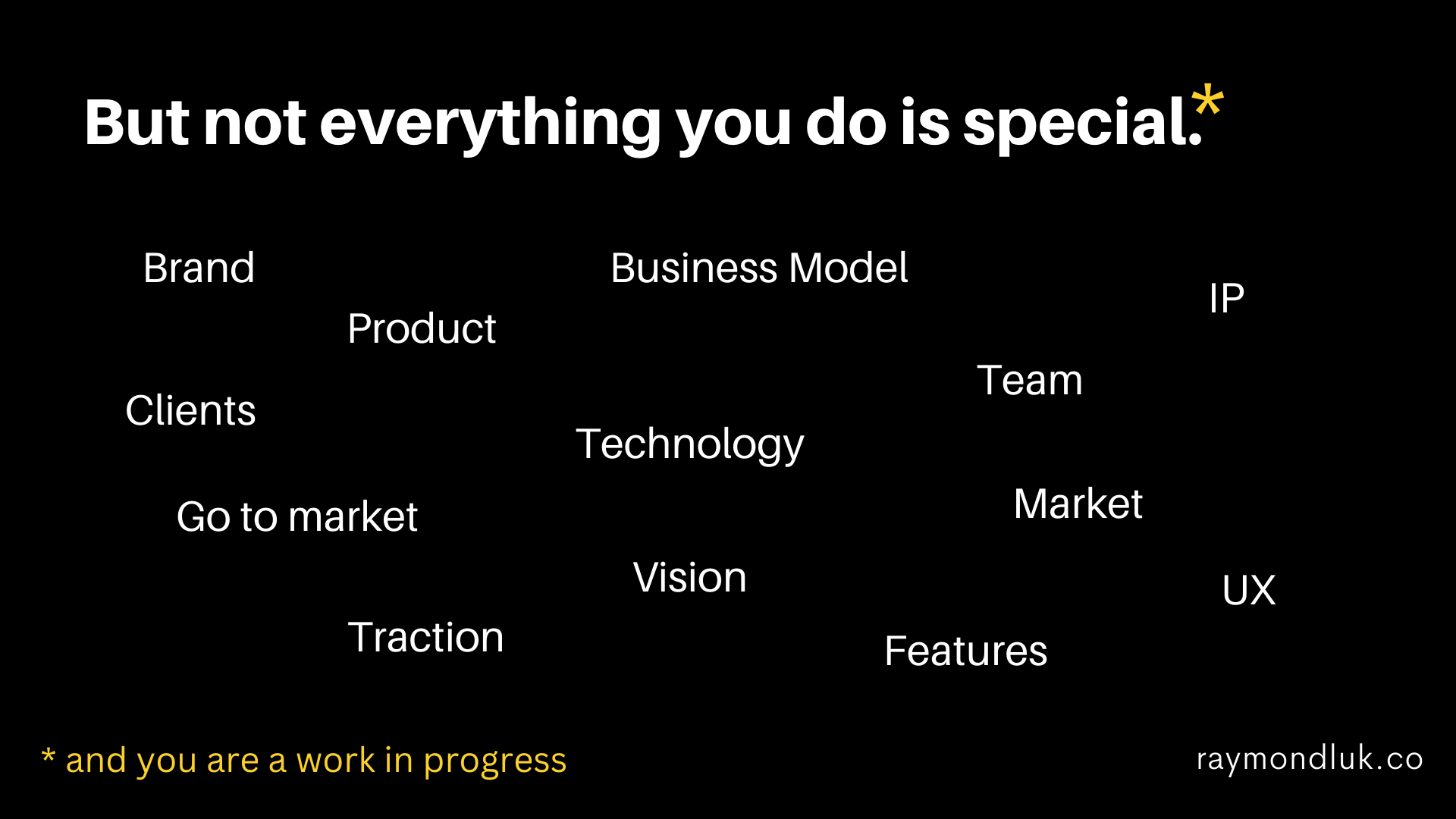
Take your product: it should be impressive and you should demo it and be proud of it. But what you built is a reaction to an interesting problem. The problem, and your approach to solving it, is what is truly special.
Early stage pitches should focus on problems and solutions, not products.
What does special really mean?
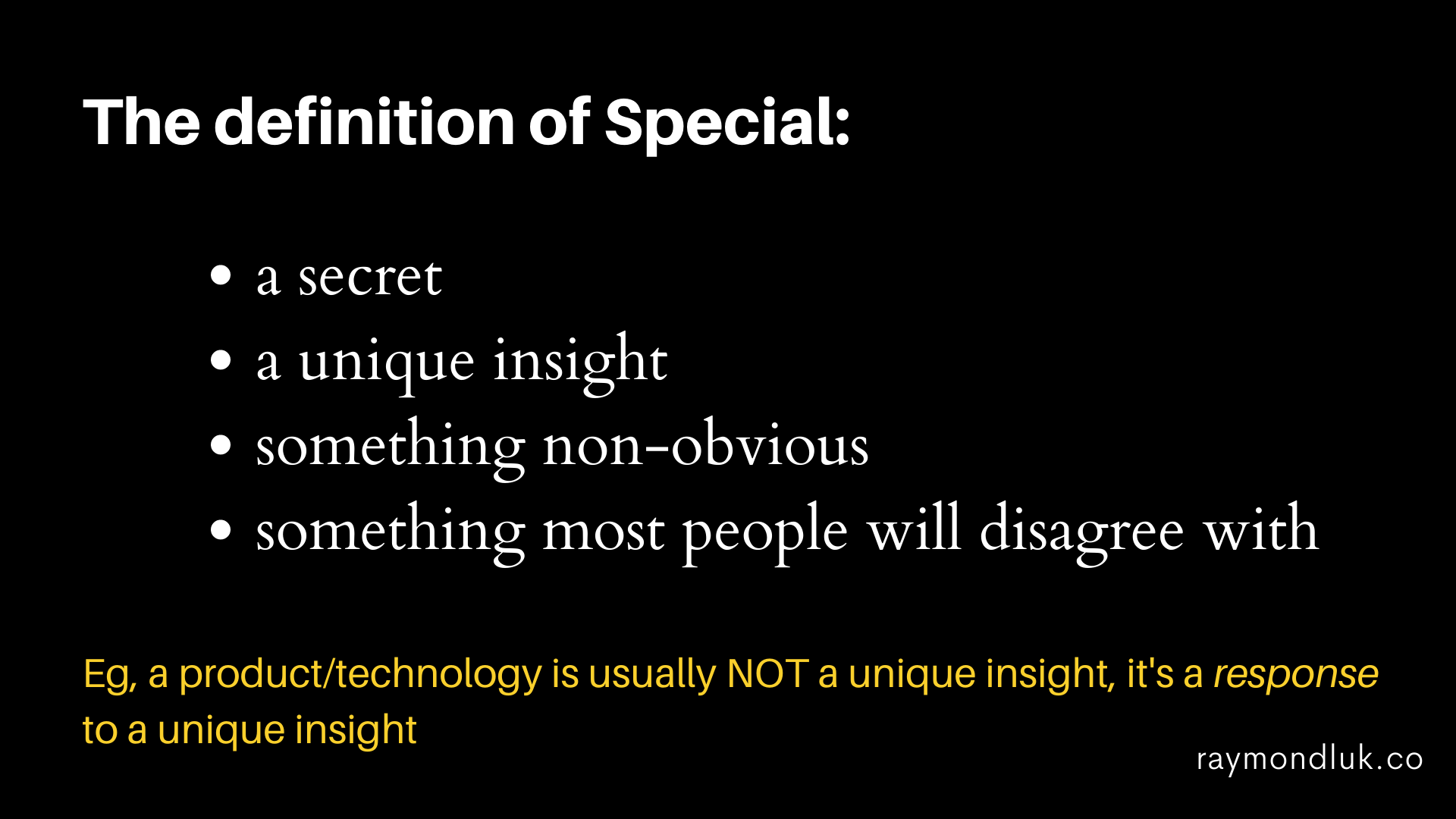
Uncovering what’s special in your company means finding the secret at its core. It’s some unique insight or perspective on the world that isn’t obvious to other people. In fact, you know it’s an insight worth building a company around if most people don’t believe it.
Here’s a hypothetical example:
Imagine a company that upcycles housewares. Artists paint beautiful designs on each piece making them one of a kind. They sell for more than the original cost.
Many people would push back on the idea of paying more for used goods. It’s not obvious that the product would actually be better. But my secret is that I’ve been painting these objects for years and seen how much people covet them. That’s why I started the company.
How to find what is special.
It’s not easy to be objective about what’s special. We all think our dog is the most beautiful. I find that asking the right questions will lead you to the right place (about your startup, not your dog).
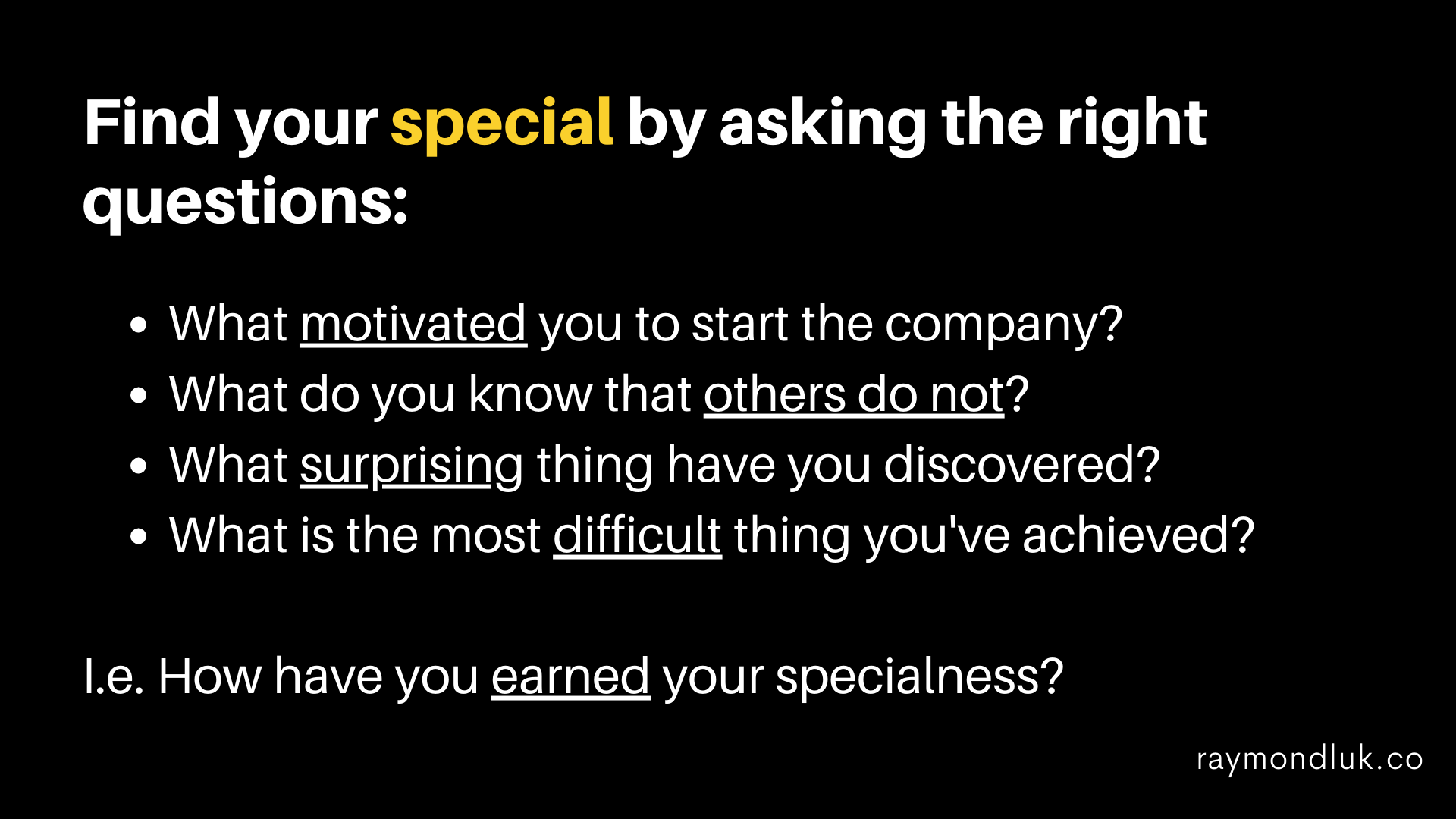
Instead of focusing on selling what you think is special, focus on asking questions. What led you to start the company? What have you figured out that others have not? What’s your most surprising metric? What was the most difficult milestone you achieved?
These types of questions keep you away from pushing your product and lead you to what is essential.
The overall question is: how did you earn your specialness?
Weighing how special you are
If you came up with an idea on Friday but worked through the weekend, what you built is not that special (yet). The “weight” of your insight cannot be big because you haven’t invested much into it yet.
Valuable insights are usually earned through some combination of:
- repetitions, think Edison’s 2,774 attempts at finding the right filament for the light bulb
- unique data, eg the output from a prototype or MVP
- some breakthrough
- surprising product traction
- industry expertise that you have, potentially pre-dating your company
Most startups avoid talking about how they earned their IP because they rush to show positive traction. This is a mistake. The iterations and failures are what created what’s unique about your company (assuming you did it).
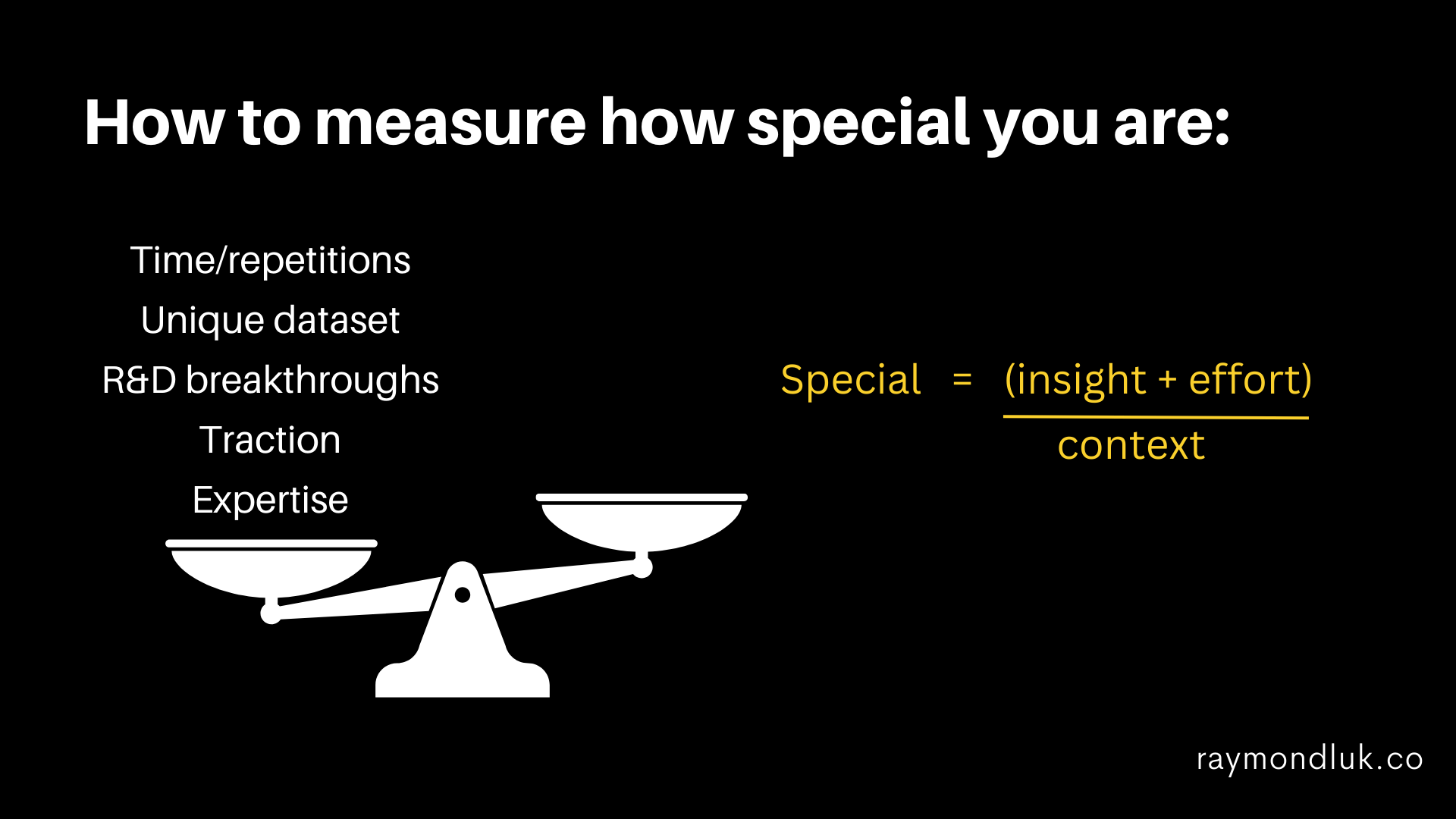
Special = (Insight + Effort) / Context
Thanks to Vlad Loktev, former VP of Product at AirBnB, for making me think about using basic equations to get to the core of what’s important.
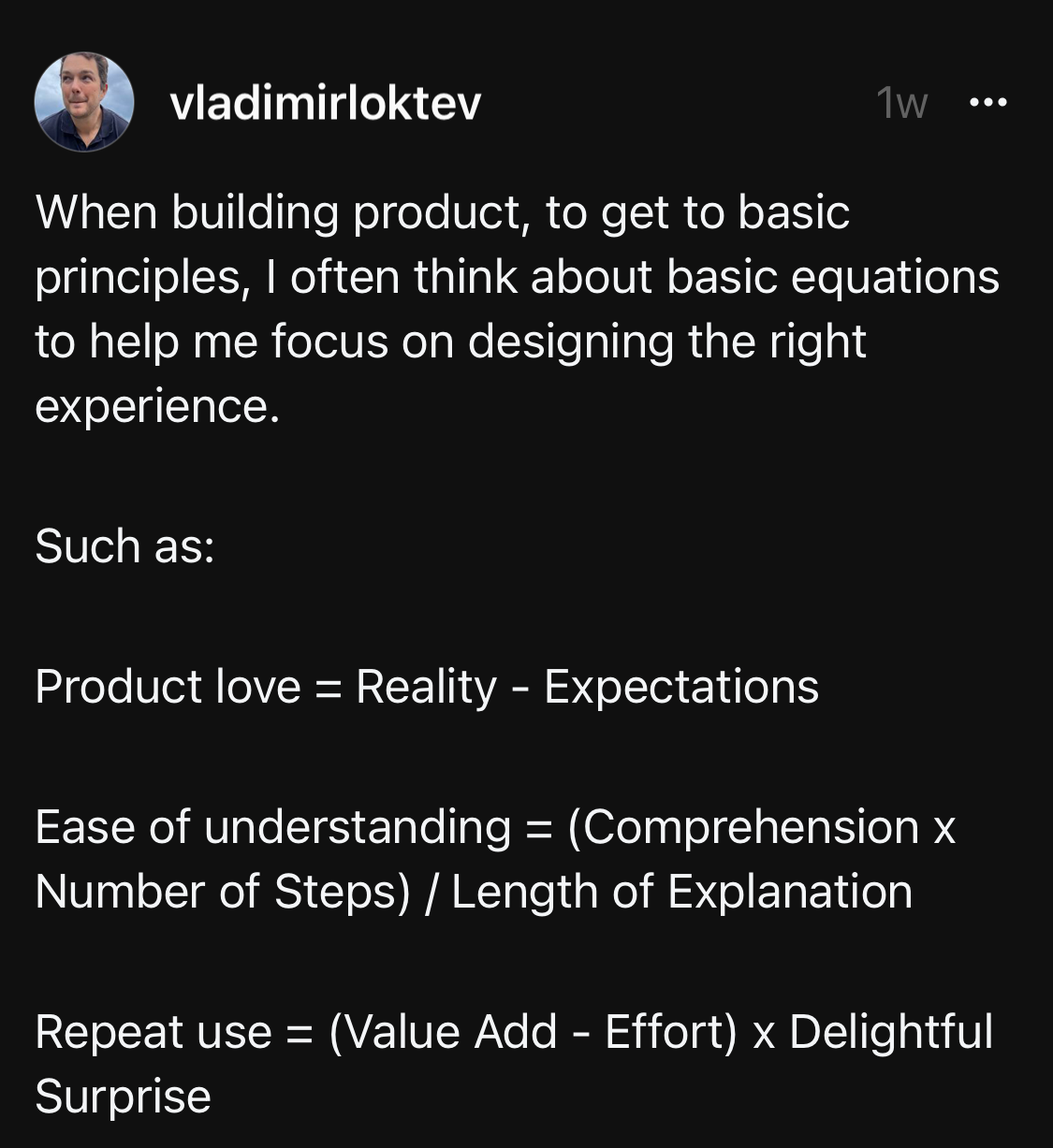
Figuring out what’s special is (Insight + Effort) / Context.
You need both insight and effort to earn being special (true in life and in startups). And don’t forget you aren’t the only one doing what you’re doing, that’s why we divide by Context.
Uh oh, you aren’t that special.
When you pitch a VC you should imagine all the pitches they’re hearing before yours. Stop thinking about all those lattes and massages you think they’re getting. No matter how special you are, be aware of the context of your startup. What other stories and technologies are they being pitched constantly?
A year ago, leading with generative AI was novel and didn’t need more context
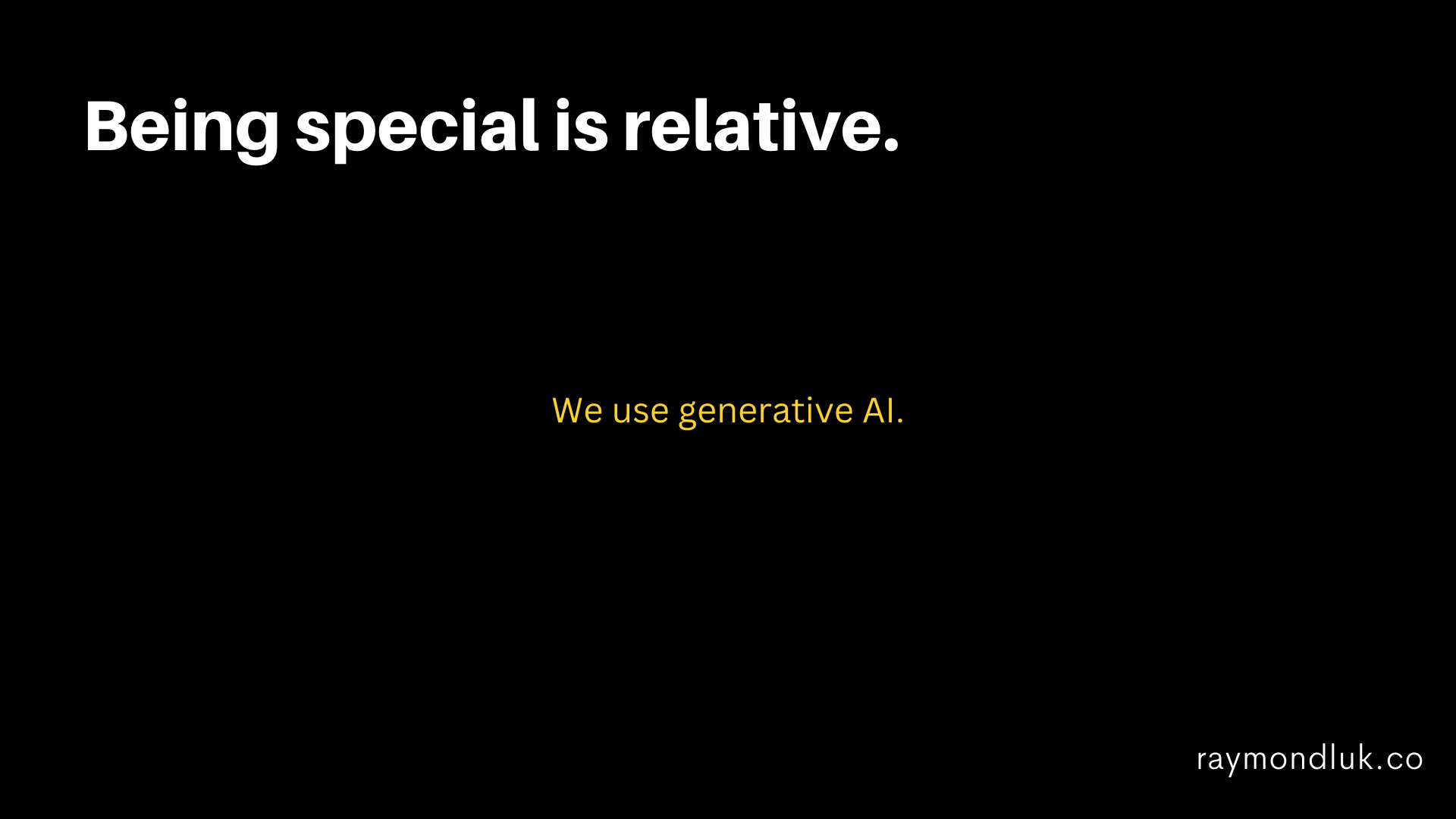
Today, not so muc:
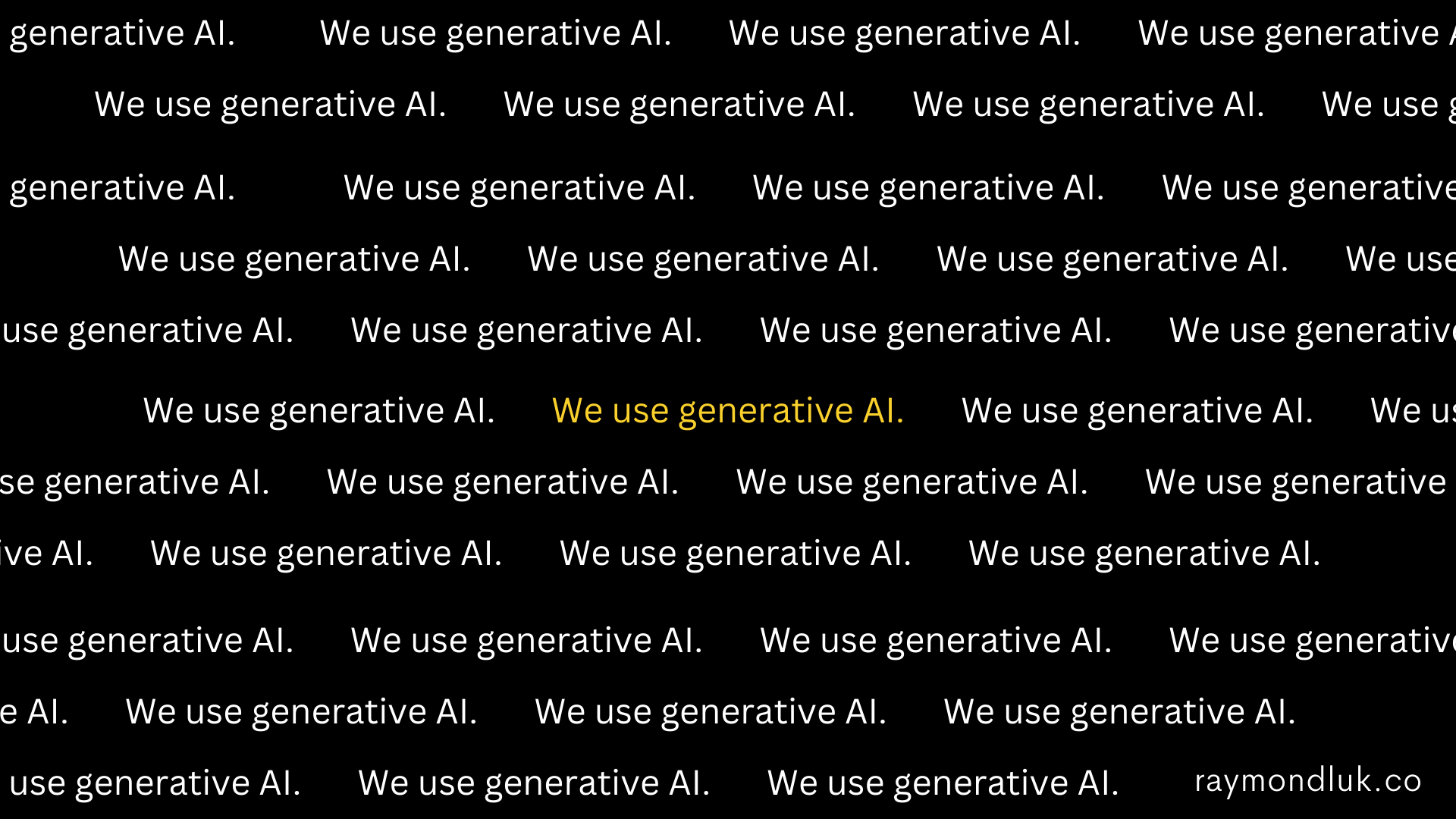
The context of mass adoption of generation AI works against anyone currently pitching it. It doesn’t mean you can’t tell a great story. It means you need to subvert expectations (i.e. the expectation you’re yet another generative AI hack).
Talk about your insight + effort that makes you completely different from other startups using generative AI. Leveraging generative AI in a unique way is an example where the technology does not need to be special as long as something else is.
There are no superpowers without heroes.
Early stage startups are mostly about people. Make sure you link what’s special about your startup with the special powers of the team behind it.
That starts with telling a strong founder origin story about why you care so much about the problem you’re solving. That tells investors you were earning your uniqueness even before you incorporated.
The same goes for your team. Don’t just list degrees and work experience. Talk about the unique skills that directly contributed to making your startup special.
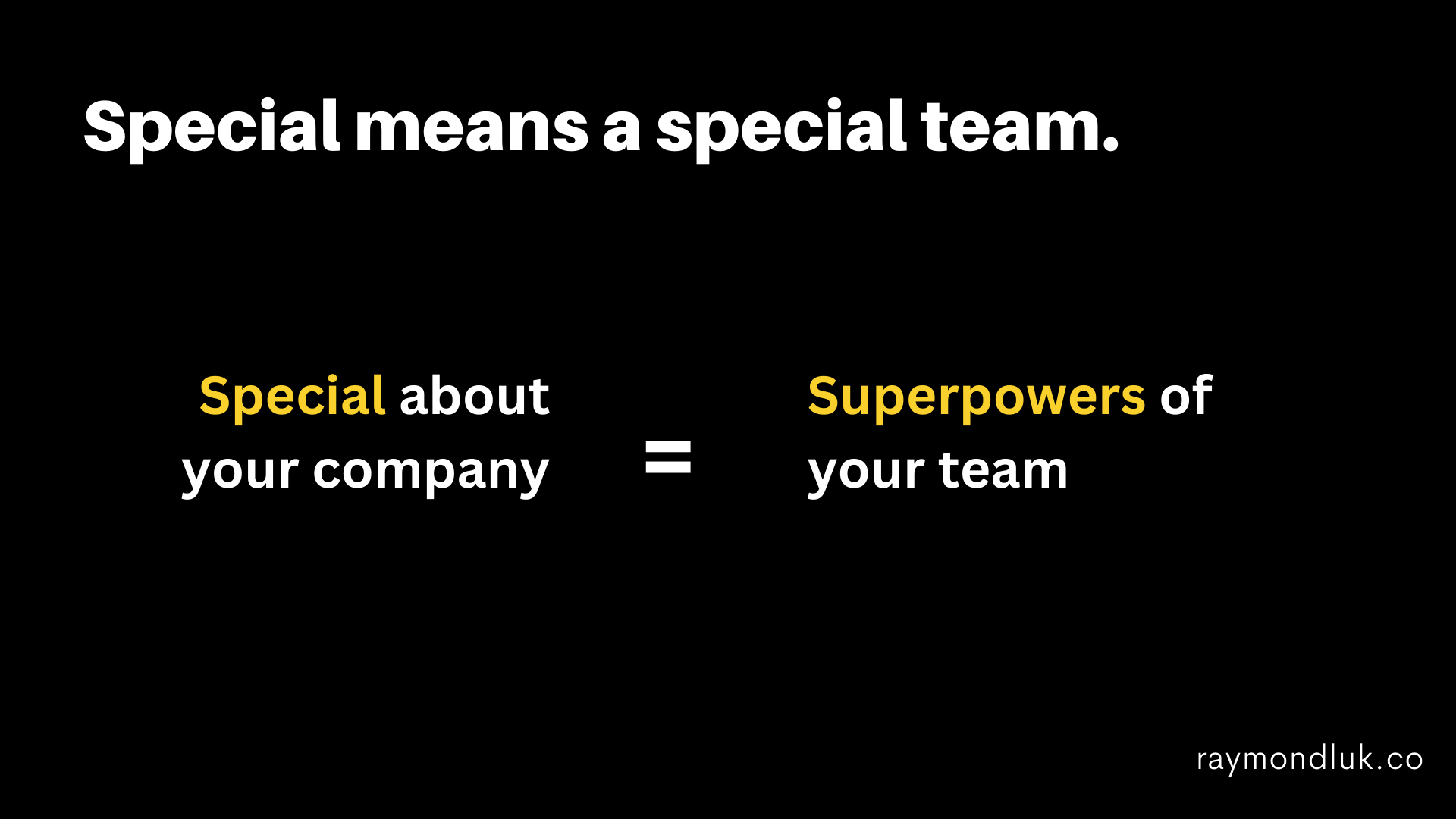
Wrapping it up.
- Most things you do aren’t special.
- Ask the right questions to find what’s unique.
- Talk about how you earned your insights.
- Remember, special is relative.
- Link what’s special to your team’s superpowers.
If you learned something from this post please share it!




